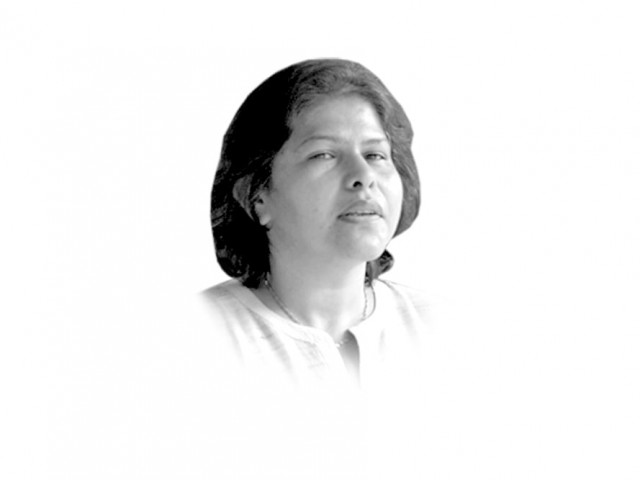Another extension for the ISI chief
We in Pakistan are made to believe that the army is the only remaining institution of the state.

The decision is being justified on the grounds of the extension being crucial to making gains in the war on terror. Pasha’s continuation is critical because he has the confidence of both his own boss and the Americans. Changing command during a war is theoretically considered detrimental to the success of operations. But then what happens the day after Pasha’s lease of life expires? This is not a regular conventional war that the Pakistan military has trained for. We have limited endurance and can fight conventional wars that are no more than a week or 10 days. The war on terror is a protracted affair that will probably go beyond 2013. It is not a fast-paced war which is about to come to a close so that the Kayani-Pasha duo are vital for some grand finale. There are other equally well-trained officers in the army who ought to get a chance to prove their war-management skills.
A friend compared the situation created by to the extension of one man in the army with the blockage of a water pipe. One extension tends to create a major block for a large number of officers. Consequently, either the pipe goes bust or it begins to leak in unimagined directions. Already, General Kayani’s extension has written off the future of about 24 senior generals who might have had dreamt of becoming the service chief. Once you become a one-star, the effort is to be able to make it to the ultimate position of power in the organisation. Surely, promotion within the army is a tricky business and anything can go wrong at any time. By the time an officer becomes a three-star he is one amongst a team of equals who may get a chance to be considered as trustworthy enough to become the team leader. There are a lot of lobbies at play at the time of the selection for the chief’s position. However, the competition being eroded due to an insider’s manipulation of power makes a lot of people uncomfortable. This also applies now to the coveted position of the chief of ISI.
The rule of thumb is that a force that crowds out other forces may actually damage itself as it destroys the capacity of others to perform certain vital functions. This is predatory behaviour which means that those at the helm of affairs are capable of destroying vital capacities due to their inability to look beyond themselves.
We in Pakistan are made to believe that the army is the only remaining institution of the state. By prolonged spells in power, it has managed to crowd out other institutions which could play a role in protecting the country from the existing mess. However, what happens if the most powerful organisation begins to eat itself from within because its members begin to crowd out organisational capacity for personal gains? Since now a lot will depend on how an officer fares with the army chief, his continuation in service will depend on personal loyalty rather than organisational or national interests.
What is even more hazardous is the fact that, at some point, the sewage pipe may just give in, resulting in an awful stench inside the organisation. There have been many occasions in the past when subordinate officers conspired against an unsuspecting superior. Even if senior officers are extremely watchful, it can become very hard to see every conspiracy being hatched. General Ziaul Haq never guessed that someone within the organisation would plan his death nor did Musharraf suspect his organisation would so willingly surrender him to circumstances.
Good organisations make their mark by their ability to create systems. Otherwise, the army will end up with a dangerous witches’ brew.
Published in The Express Tribune, March 13th, 2011.















COMMENTS
Comments are moderated and generally will be posted if they are on-topic and not abusive.
For more information, please see our Comments FAQ